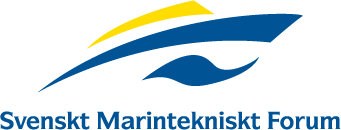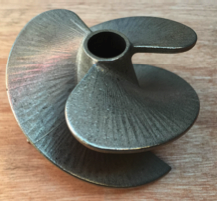SMTF and CAE Value invites you to an exciting half-day seminar on the 14th of June
It has been said that 3D printing (additive manufaturing) will revolutionize the maritime industry as we know it, eliminating the costly effects of delivery times as well as storage costs of crucial spare parts. With 3D technology the crew on board can print the part them selves right then and there. But before they press “print” the digital framework needs to be in place and it is yet to prove if the printed parts holds the same quality as their traditionally produced counterparts.
Experiences from the 3D Printing of Maritime Spare Parts Project (NL)
Mr. Jeroen Kok from Marin, the Maritime institute of the Netherlands, will share the experinces made by the Dutch project 3D Printing of Maritime Spare Parts. A consortium of 27 marine-related companies and lead by InnovationQuarters, in Rotterdam, whom examined some 30 selected spare parts, four of which were chosen for 3D print production and tested to see if they meet the strict requirements for maritime shipping.
Spare parts into data bits – cost efficiency through on demand 3D printing (FI)
VTT and Aalto University together with 13 Finnish companies started a project this year to promote the transition from traditional production chains of spare parts to a dynamic network model, one which uses digitization and 3D printing technology to generate added value.
Wärtsilä, one of the thirteen companies participating in the project, admits to using up significant resources in its currently un-digitized spare parts operations: “In companies like Wärtsilä, the capital tied up in materials and equipment may amount to hundreds of millions of euros,” explaines Jarno Salonen, Business Development Manager at Wärtsilä. “If we could release, say, even 5% of this capital by means of digitization, the impact would be substantial.”
Learn more about the DIVA project from Mika Salmi, Project Manager, D.Sc. (Tech.) Aalto University, Department of Mechanical Engineering
Additive Manufacturing at Swerea – From prototype to production (SE)
The technological advancements in the field of additive manufactoring moves fast. Sven Karlsson and Thorbjörn Åklint from Swerea IVF will present the current development status of additive manufacturing in different materials and how they help private companies make use of 3D printing.
Fatigue & Optimization for Dynamically Responsive Systems (UK)
One of the added benefits of 3D prints is the light weight of the printed components. Requirements of lighter products is increasing in industries such as automotive, marine and energy. Lightweight plays a vital role for increased efficiency and reduced environmental impact. A vital part of creating lighter products is to remove unnecessary conservatism in the input loading used for any design or laboratory test simulation.
In this presentation Dr NWM Bishop from CAEfatigue Limited will introduce the topic of fatigue loading optimization for dynamically responsive systems or structures.
HEEDS has been making headlines as a powerful solution for design exploration. Customers have been using its technology to win contracts and discover better designs, faster. Typical Automotive & Marine examples using HEEDS will be shown.
When and where
14th of June,10 am – 1 pm, lunch included.
Conference Center Eriksbergshallen, 3rd floor, room 31
Maskingatan 11 | 417 64 Gothenburg.
Registration
Email with name, organization/company, invoice details and any dietary requirements to;
Eva Errestad, eva.errestad@smtf.se or by phone; +46 (0)706-41 99 32.
Please note there are limited seats available.
Participant fee
500 SEK excl. VAT for SMTF-members, 1000 SEK excl. VAT for non-members.
A no-show fee of 350 SEK will be charged for registration with out particpation.
The participation fee will be invoiced after the seminar.
Warm welcome!


